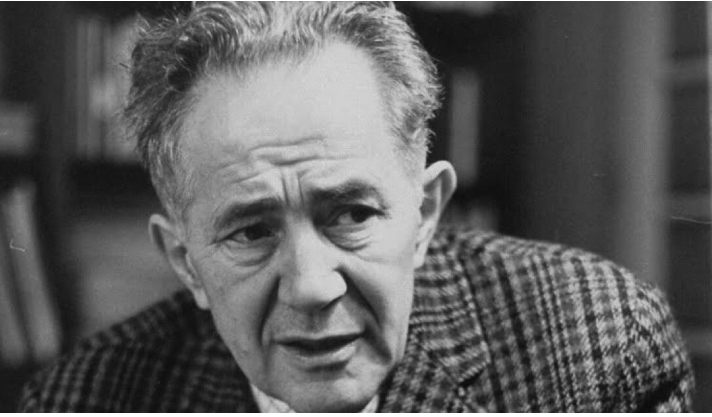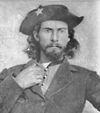Conclusions About Josef Stalin: Thoughts by Milovan Djilas
"At the time I was still capable of believing that I could be a Communist and remain a free man." --Milovan Djilas

Milovan Djilas became as a communist revolutionary in Yugoslavia and was a true believer in communist doctrine. However, he became disillusioned by its practice--especially in t he USSR--and finally became a powerful critic. His criticism was not so much with socialist doctrine; rather, he came to be an inveterate critic of communist parties and their transformation from revolutionaries promising the end of exploitation to becoming exploiters themselves.
In his work, Conversations with Stalin (which he was jailed for writing), he bemoaned that the hope of communism in the person of Josef Stalin was crushed by the fact of Stalin. Being a high-ranking Yugoslav official and ally of the Soviet Union, Djilas met with Stalin several times. He wrote, "Once again a dream was snuffed out on contact with reality."
Of interest in this post is the fact that although Djilas fought against the Nazis, he named Stalin as the greatest criminal in history. This excerpt will explore his reasoning and conclusions for this characterization.
August Glen-James, editor
Those who wish to live and to survive in a world different from the one Stalin created and which in essence and in full force still exists must fight.
Many persons, among them Trotsky,* of course, stress Stalin's criminal, bloodthirsty passions. . . . Trotsky even suspects that he killed Lenin, with the excuse that he was shortening his misery. . . . Every crime was possible to Stalin, for there was not one he had not committed. Whatever standards we use to take his measure, in any even--let us hope for all time to come--to him will fall the flory of being the greatest criminal in history. For in him was joined the criminal senselessness of a Caligula with the refinement of a Borgia and the brutality of a Tsar Ivan the Terrible.
I was more interested, and am more interested, in how such a dark, cunning, and cruel individual could ever have led one of the greatest and most powerful states, not just for a day, or a year, but for thirty years! For in carrying out his undertakings not only did Stalin find it to his advantage to deal with an exhausted and desperate Russian postrevolutionary society, but it is also true that certain strata of that society, to be more exact, the ruling political bureaucracy of the Party, found use for just such a man--one who was reckless in his determination and extremely practical in his fanaticism
To be sure, much that is human assumes proportions and values according to the corner from which it is viewed.
So it is with Stalin.
If we assume the viewpoint of humanity and freedom, history does not know a despot as brutal and as cynical as Stalin was. He was methodical, all-embracing, and total as a criminal. He was one of those rare terrible dogmatists capable of destroying nine tenths of the human race to "make happy" the one tenth.
However, if we wish to determine what Stalin really meant in the history of Communism, then he must for teh present be regarded as being, next to Lenin, the most grandiose figure. He did not substantially develop the ideas of Communism, but he championed them and brought them to realization in a society and a state. He did not construct an ideal society--something of the sort is not even possible in the very nature of humans and human society, but he transformed backward Russia into an industrial power and an empire that is ever more resolutely and implacably aspiring to world mastery.
Viewed from the standpoint of success and political adroitness, Stalin is hardly surpassed by any statesman of his time.
I am, of course, far from thinking that success in political struggles is the only value. It especially does not occur to me to identify politics with amorality, though I do not deny that, by the very fact that politics involve a struggle for teh survival of given human communities, they are thereby marked by a disregard for moral norms. For me great politicians and great statesmen are those who can join ideas and realities, those who can go forward steadfastly toward their aims while at the same time adhering to the basic moral values.
All in all, Stalin was a monster who, while adhering to abstract, absolute, and fundamentally utopian ideas, in practice recognized, and could recognize, only success--violence, physical and spiritual extermination.
However, let us not be unjust toward Stalin! What he wished to accomplish, and even that which he did accomplish, could not be accomplished in any other way. The forces that swept him forward and that he led, with their absolute ideals, could have no other kind of leader but him, given that level of Russian and world relations, nor could they have been served by different methods. The creator of a closed social system, he was at the same time its instrument and, in changed circumstances and all too late, he became its victim. Unsurpassed in violence and crime, Stalin was no less the leader and organizer of a certain social system. Today he rates very low, pilloried for his "errors," through which the leaders of that same system intend to redeem both the system and themselves.
And yet, despite the fact that it was carried out in an inappropriate operetta style, Stalin's dethronement proves that the truth will out even if only after those who fought for it have perished. The human conscience is implacable and indestructible.
Unfortunately, even now, after the so-called de-Stalinization, the same conclusion can be reached as before: Those who wish to live and to survive in a world different from the one Stalin created and which in essence and in full force still exists must fight.
*Trotsky was exiled and killed while living near Mexico City. He was struck on the head with an ice axe by an assassin. He survived the initial attack, but died the next day.
